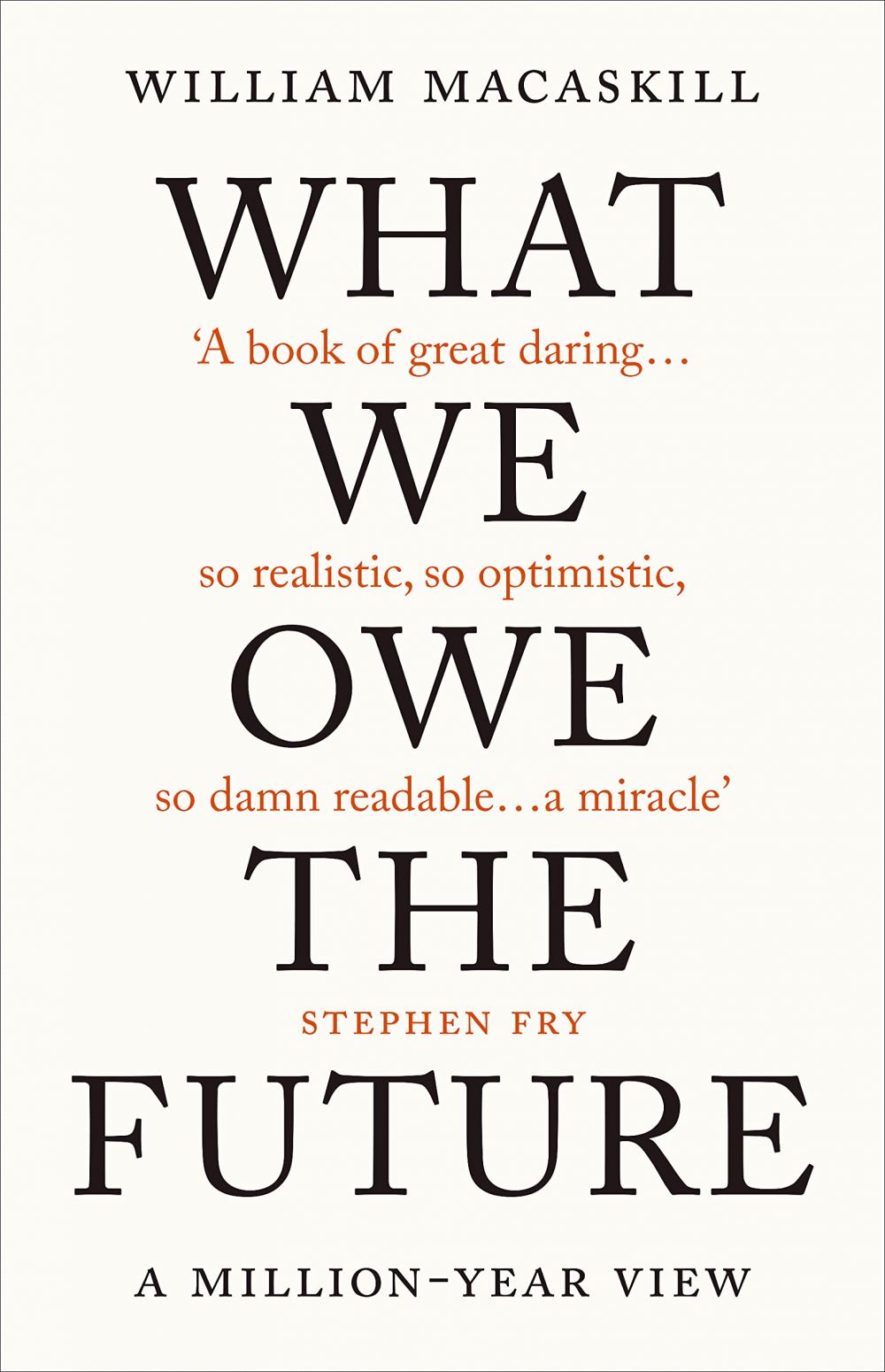What We Owe The Future
|
It took me a while to put my finger on what was so irritating about this book. To be sure, there’s a patronising glibness about it: it is positively jammed full of the sort of thought experiments (“imagine you had to live the life of every sentient being on the planet” kind of thing) that give philosophy undergraduates a bad name.
William MacAskill is, as best as I can make out, barely out of undergraduate philosophy class himself and hasn’t yet left the university. A thirty-something ethics lecturer would strike most people (other than himself) as an unlikely source of cosmic advice for the planet’s distant future. So it proves.
But ultimately it is MacAskill’s sub-[[Yuval Noah Harari|Harari}}, wiser-than-thou, top-down moral counselling that grates: humanity needs to solve the problems of the future centrally; this requires brainy people from the academy, like MacAskill, to do it. And though the solution might be at the great expense of all you mouth-breathing oxygen wasters out there, it is for the future’s good.
We should sacrifice you lot — birds in the hand — for your far-distant descendants — birds in a bush that may or may not be there in 500m years.
Thanks — but no thanks.
It is not at all clear what anyone can do to influence the unknowably distant future — a meteor could wipe us out any time — but in any case expected value probability calculations sure aren’t going to help. Nor does MacAskill ever say why organisms who are around now should give the merest flying hoot for a species which, if it survives at all, will have doubtlessly evolved beyond all recognition in 500 million years.
How, or why, donating a tithe of your income now is supposed to benefit the race of pan-dimensional hyperbeings we will have evolved into by then, he does not say. Is he unaware, or just uncomprehending, of the basic principles of chaos theory? Causality may or may not be true, but forward progress in an open ecosystem of independent agents is non-linear. There is no “if-this-then-that” over five years, let alone fifty, let alone five million. We are in the lap of the gods.
Quick side bar: Probabilities are suitable for closed, bounded systems with a complete set of known outcomes. The probability of rolling a six is ⅙ because a die has six equal sides, is equally likely to land on any side, and must land on one, and no other outcome is possible. This is not how most things in life work. Probabilities work for finite games. The future is in no sense a finite game. It is unbounded, ambiguous, incomplete, the range of possible outcomes are not known and may as well be infinite. You can't calculate probabilities about it. Gerd Gigerenzer would say it is a situation of uncertainty, not risk. Expectation theory is worthless.
This demolishes MacAskill’s foundational premise — applied “expectation theory” is how he draws his conclusions about the plight of the Morlocks of our future — and is enough to trash the book’s thesis in toto.
Does this self-sacrifice for the hereafter also apply to non-sapient beasts, fish and fowls, too? Bushes and trees? If not, why not?
If homo sapiens really is as hopeless a case as MacAskill thinks, who is to say it can redeem itself millennia into the future? What makes Macaskill think future us deserves that chance that present us is blowing so badly? Perhaps it would be better off for everyone else said saintly beasts, fish fowls, bushes and trees) if we just winked out now.
MacAskill’s loopy Futurism appeals to the silicon valley demi-god types who have a weakness for Wagnerian psychodrama and glib a priori sci fi futurism. To MacAskill’s chagrin, deluded fantasist Sam Bankman-Fried is a fan, supporter, and seems to have “altruistically” given away a large portion of his investors’ money to the cause. I wonder what the expected value of that outcome was. You perhaps shouldn’t judge a book by the company it keeps on bookshelves, but still.
If you want sensible and thoughtful writing about the planet and its long term future, try Stewart Brand and Brian Eno and the good folk of the Long Now Foundation. Give this hokum the swerve.
